After the forest fires in August 2021 and the rain floods just a few weeks later, Greece is again hit by unusual weather extremes in January 2022 that make life difficult for the trees. Here is a field report from Matthias:
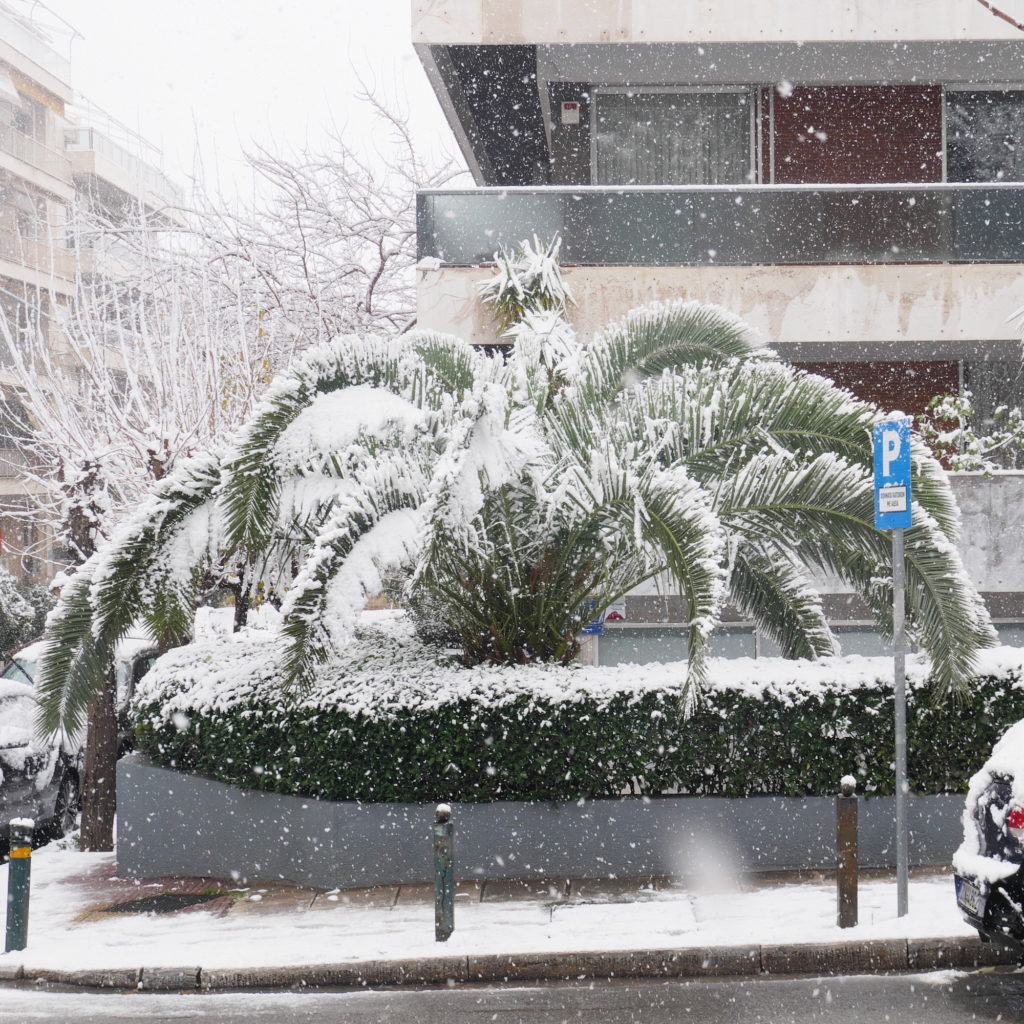
Almost every winter, a tiny amount of snow falls from the sky in Athens. It often disappears again within a few minutes. But 2022 is the second year in a row that a huge amount of snow falls down on the Greek capital in just one day. January 24, 2022 brings one of the 10 snowiest days in Athens of the last century. Since the Greek capital is not prepared for such masses of snow, as a result of such weather events half the city lies still as if paralyzed until two days later the snow is cleared or melted. As a precaution, January 24 was already declared a public holiday, and when the extent became clear on the 25th, holidays were extended until January 26.
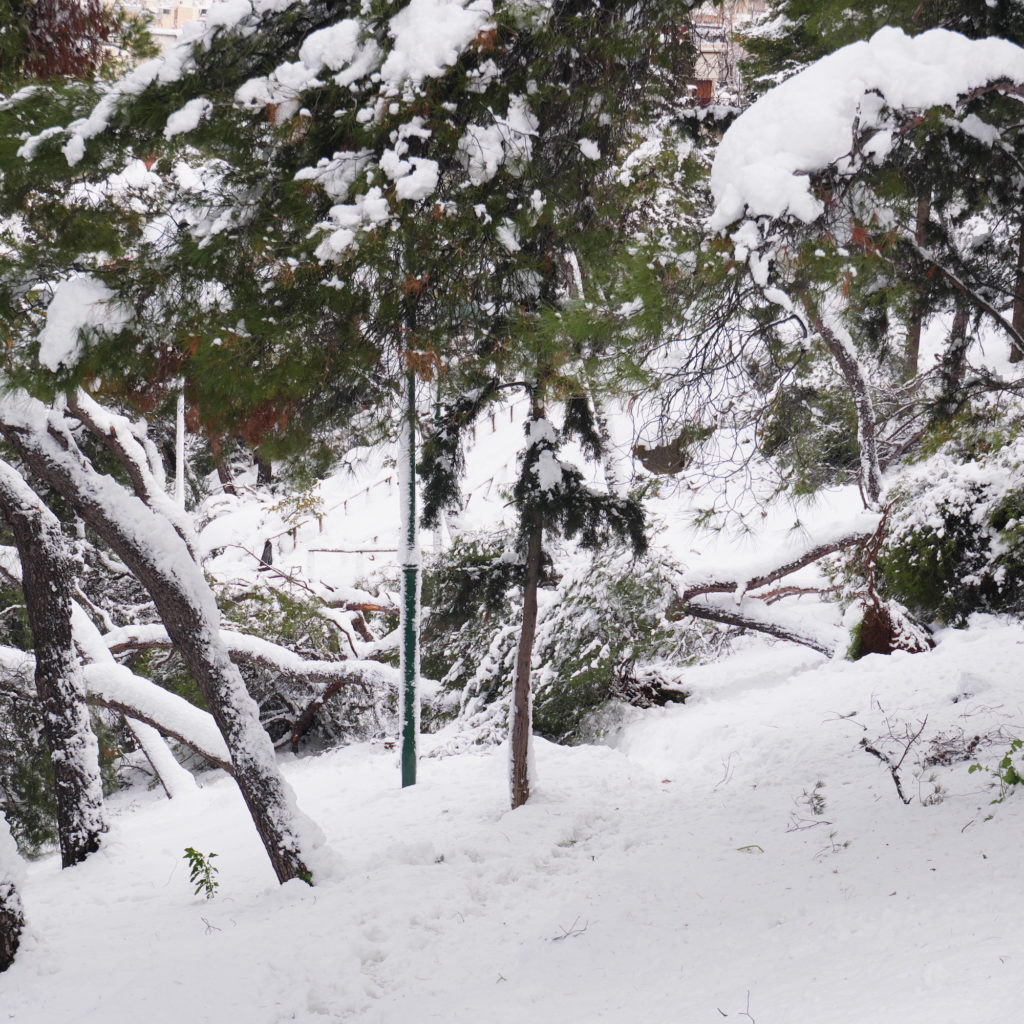
But these new extreme winter events are a major challenge for the city’s trees. Without real winters with snowfall the trees in Athens never had to deal with the weight of hundreds of kilograms or (depending on the size of the tree) even several tons of snow. With such weather effects the trees can easily collapse under this unfamiliar load.
In addition to the snow events, the more frequent onset of frosts is another additional factor that will cause the local flora to rearrange itself. Even if there are almost no significant frosts for years, then sometimes one night with several degrees below zero is enough to potentially end decades of growth. For example, even old agaves or cacti can literally die overnight, because these introduced plants have no natural frost protection.
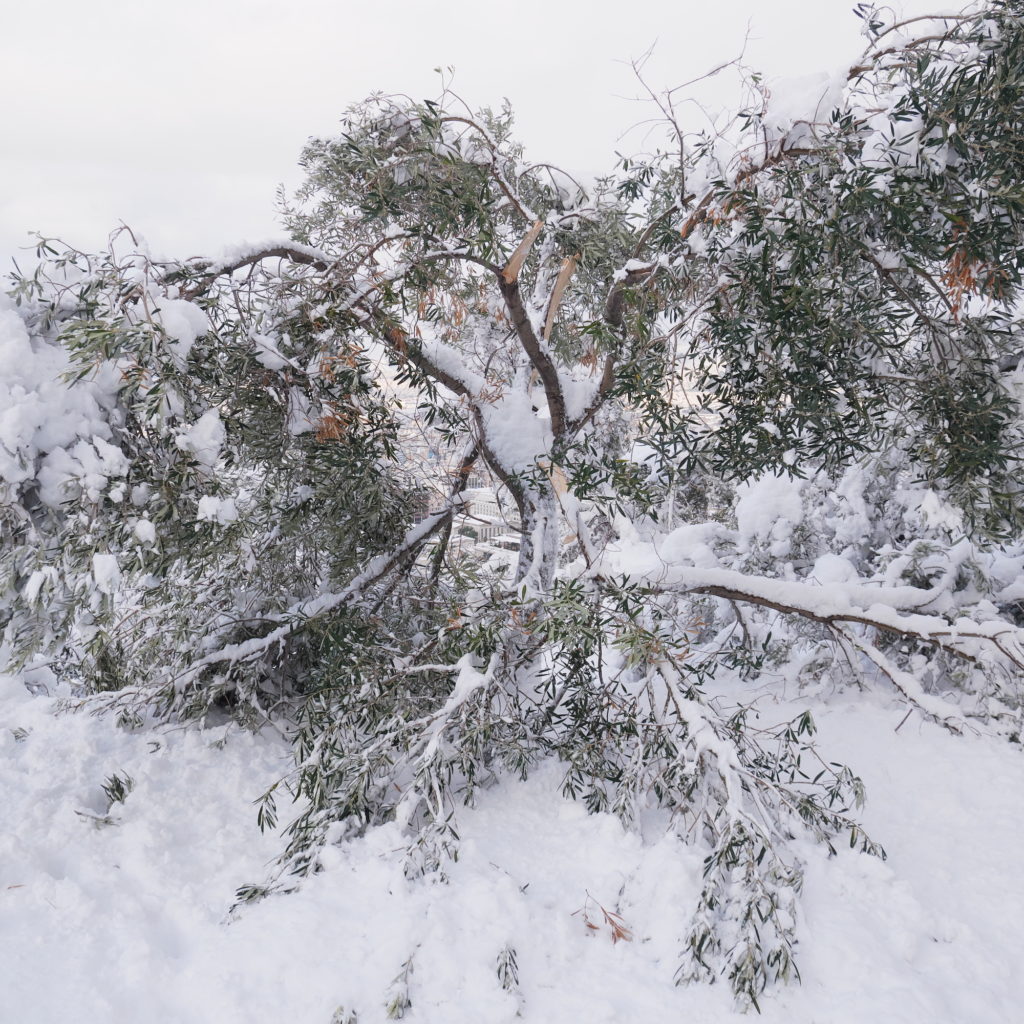
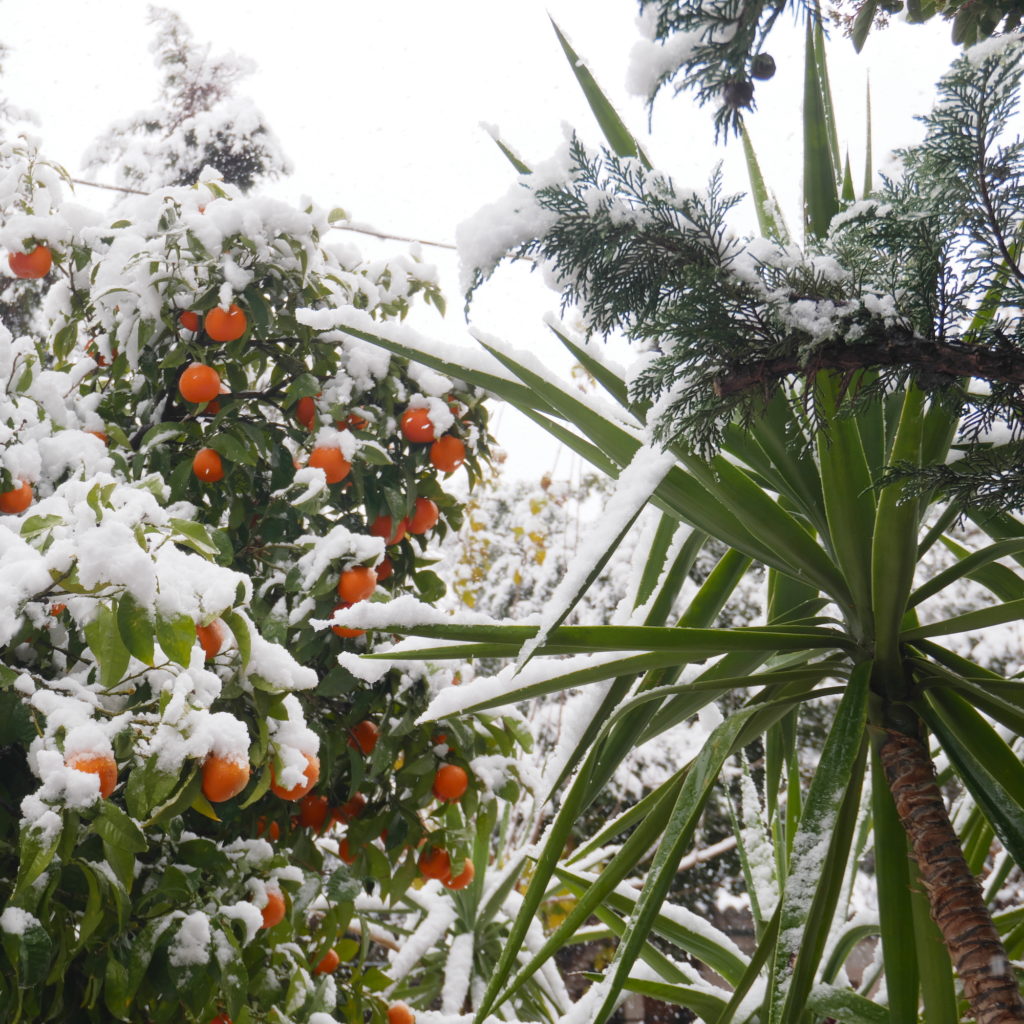
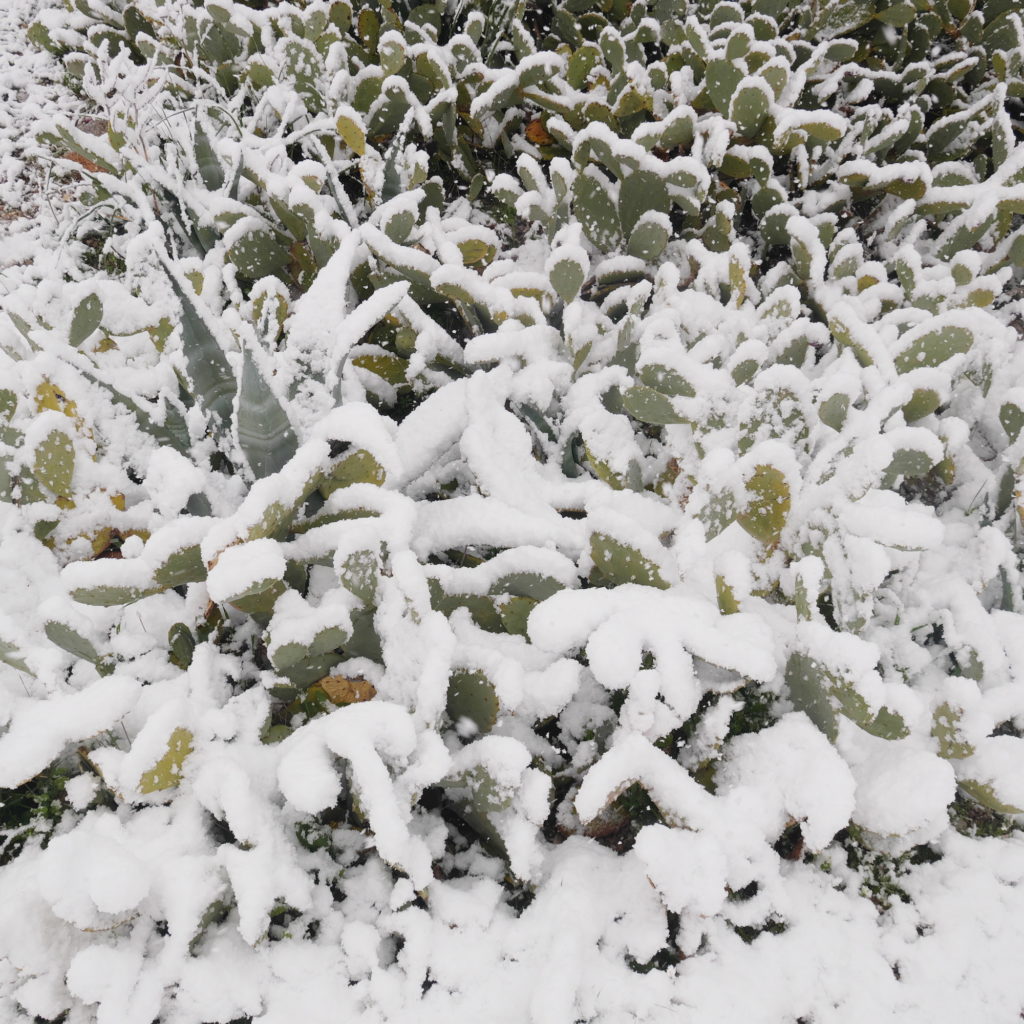
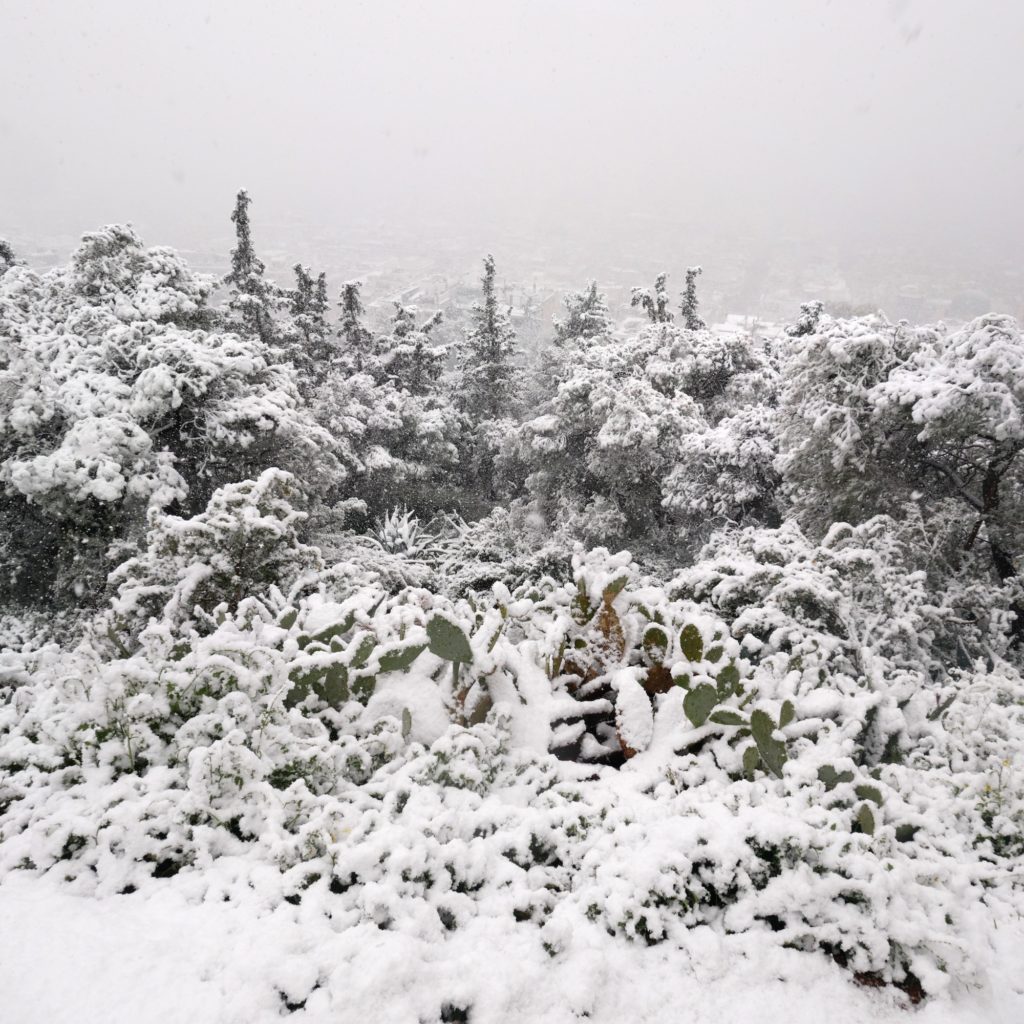
Surprisingly, climate change will not only present the flora of this region with the challenge of having to adapt better to the increasingly hot dry phases of summer, but it will also have to make itself strong against more frequent and more severe winter storms at the same time. Only one thing is clear: the Chinese Tree of Heaven (Ailanthus altissima), which already dominate both Berlin and Athens, don’t seem to mind any of this at all. They will probably emerge as winners from all these climate changes.
Postscript
Here is a compilation of the damage to various trees that could not support the short-lived snow load:
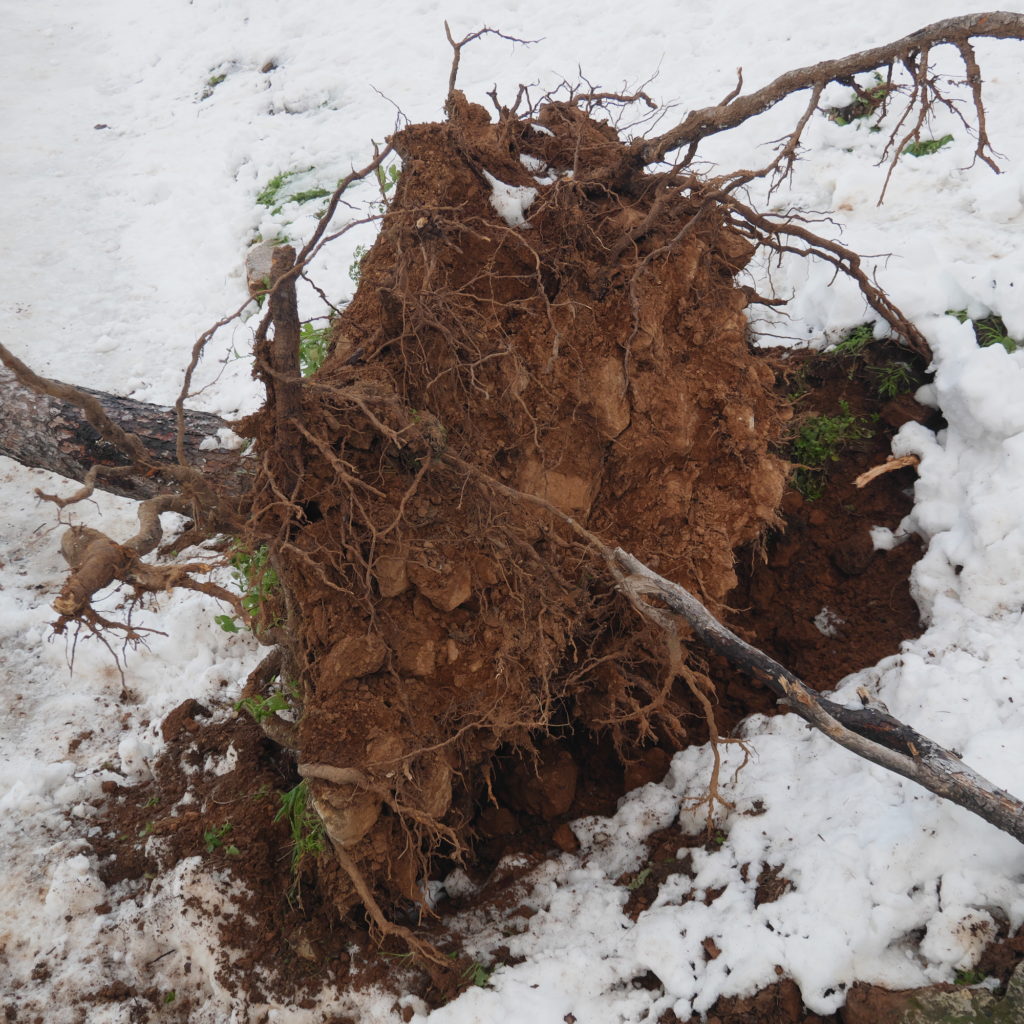
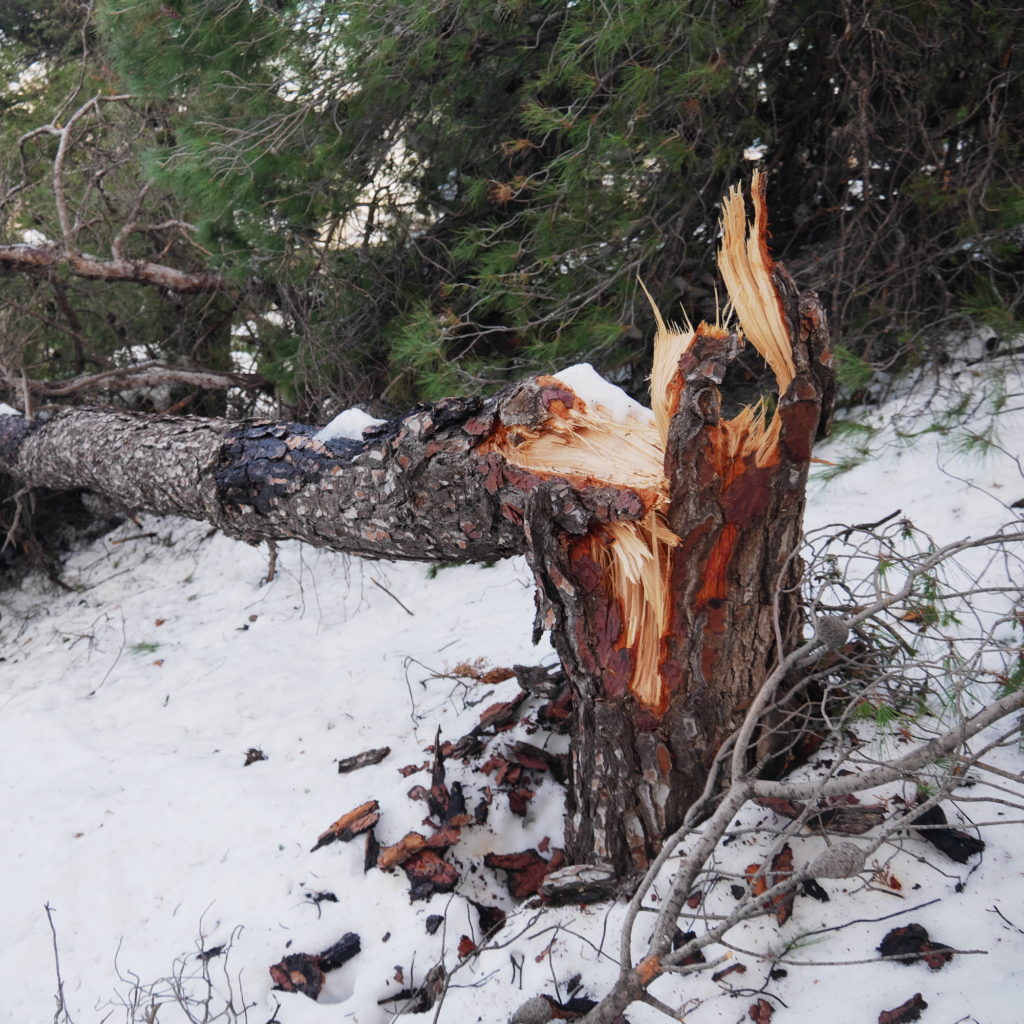
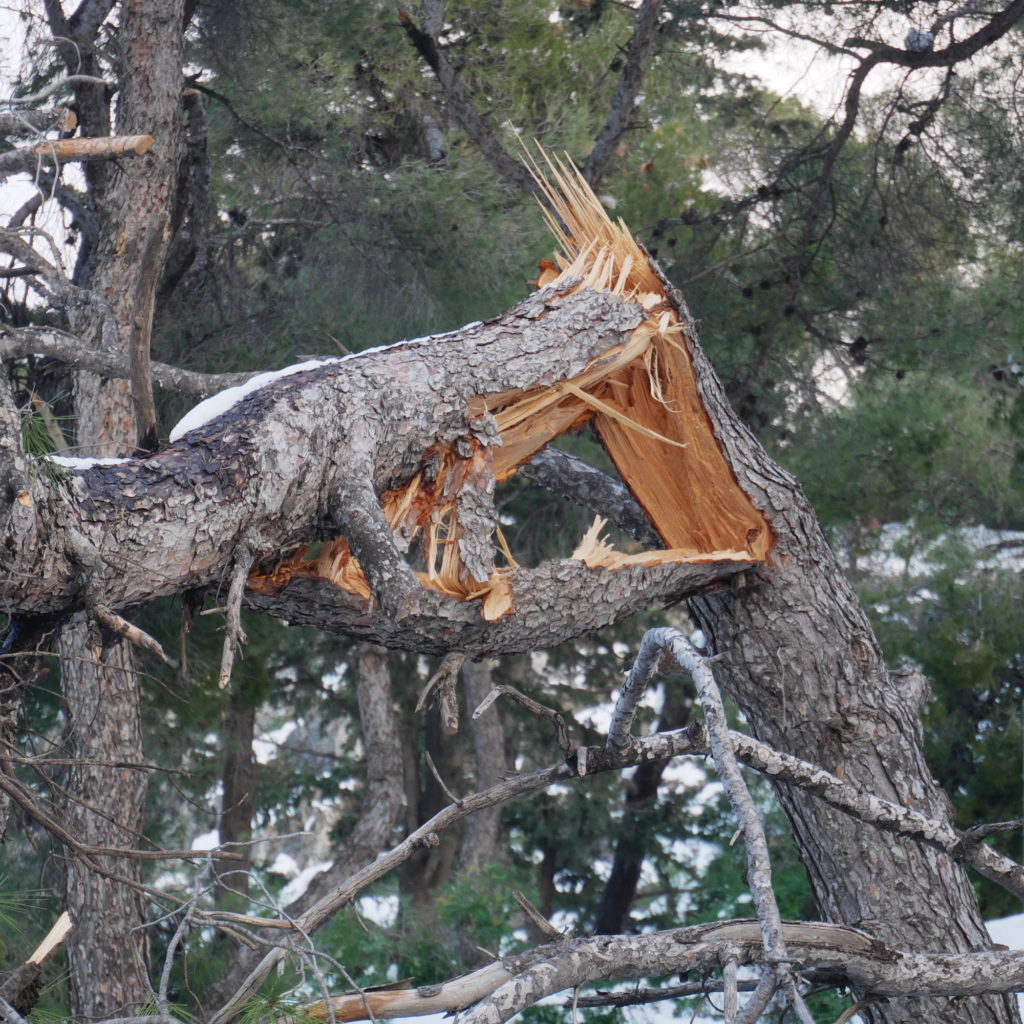
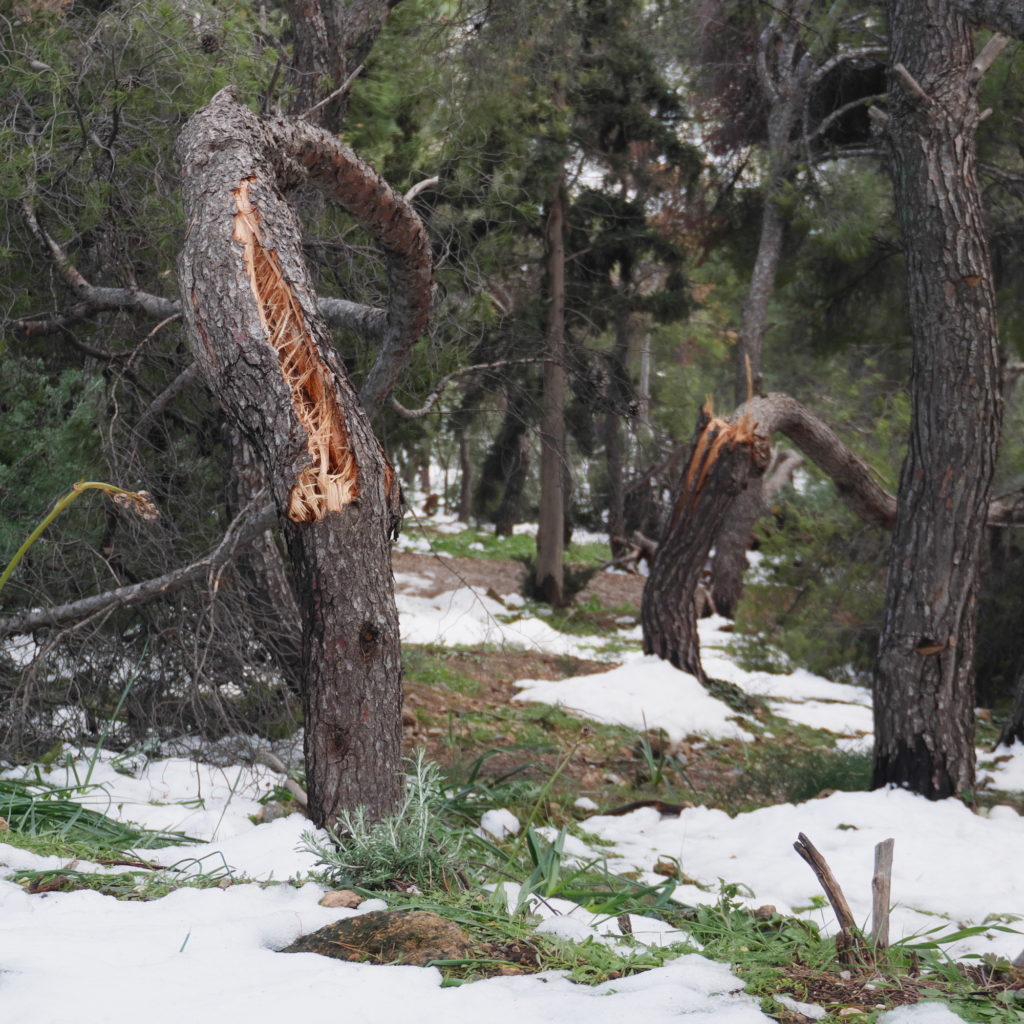
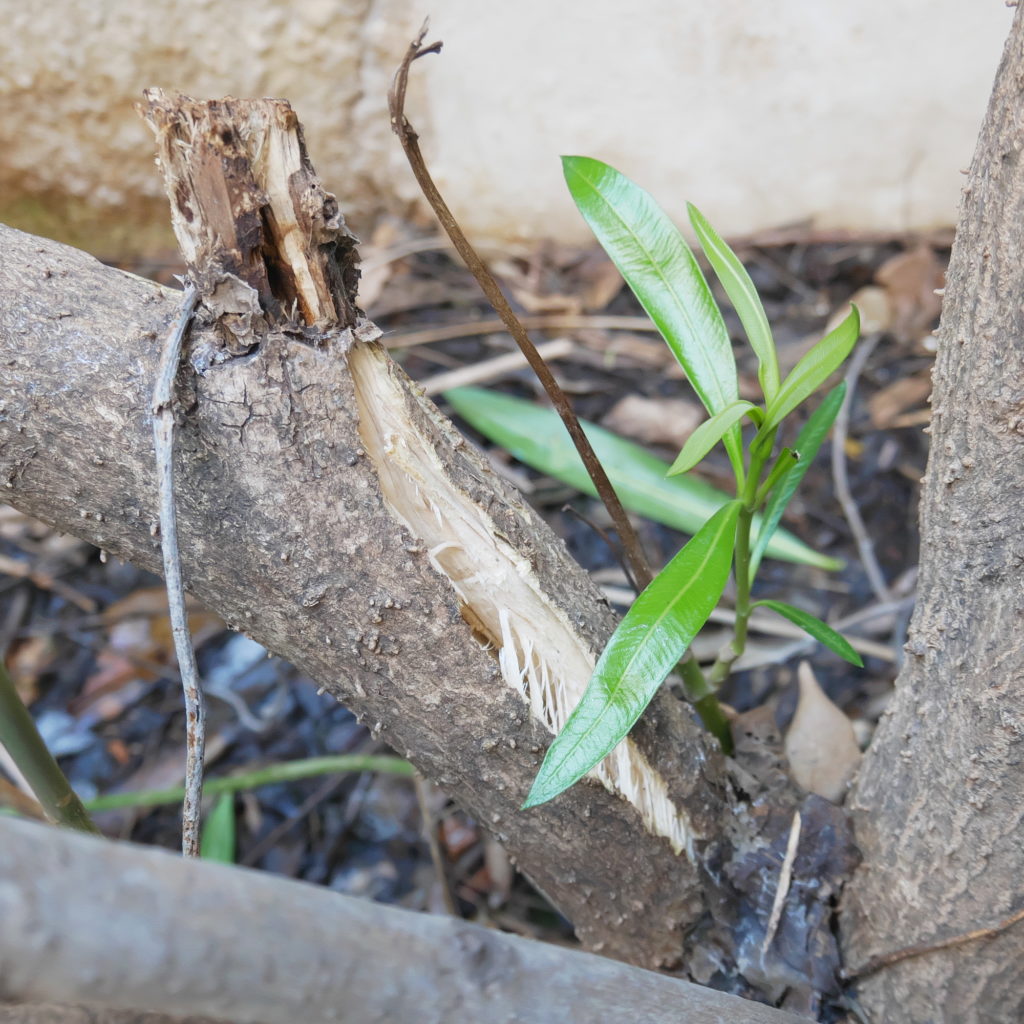
Matthias Fritsch is part of the core team of the Waldgartenpilot in Rehfelde. For professional and private reasons, he regularly travels on the European long-distance bus network between Berlin and Athens & as a filmmaker documents phenomena related to climate change. As a freelance artist he develops his own solutions and routines for a resource-saving everyday life. In Rehfelde he initiated e.g. the experimental gardens and the shade tree nursery.

